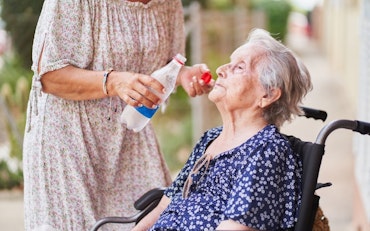Further serious incident safeguards for home care clients
As the Federal Government strengthens the governance over aged care providers, more changes and adaptations are being made to critical systems that protect older people – including a proposed extension to the Serious Incident Response Scheme (SIRS) to cover home and community care services.
![<p>Home care providers will be required to undertake SIRS reporting by 1 December 2022 if the Bill amendments are passed. [Source: iStock]</p>](https://agedcareguide-assets.imgix.net/news/articles/news/articles/1_11_2022-serious-incident.jpg?fm=pjpg&format=auto&w=550&q=65)
Home care providers will be required to undertake SIRS reporting by 1 December 2022 if the Bill amendments are passed. [Source: iStock]
The Government has released a draft and is seeking feedback on the extension of the SIRS reporting to home care providers through potential changes to the Aged Care Legislation Amendment (Incident Management and Reporting) Instrument 2022 Bill.
Under the proposed changes, home and community care providers would also be required to undertake SIRS reporting for any incidents experienced by their older clients. The legislation currently only covers incident reporting involving residents of aged care facilities.
SIRS is an important protection for those living in nursing homes, so what would a change to this Bill mean and how would it benefit home care clients?
What are the changes being made to the Bill?
The changes to the Incident Management and Reporting Bill specifically relate to the SIRS protocol.
This is an important safeguard for older Australians living in residential aged care, as it ensures reasonable action is taken to prevent incidents that could impact their safety, health, wellbeing, and quality of life.
Currently, the Government is in the process of consulting with the public and the sector about extending this framework to include home care and flexible care services.
So if you live at home and are receiving home or community care, you will be covered by this SIRS change.
This means your provider will be able to escalate any form of abuse or harm you experience while receiving home care services, as well as appropriately report the incident.
This change will come into effect from 1 December 2022 and all home care providers will need to undertake the SIRS reporting when specific incidents occur.
What does it mean for home care clients?
SIRS aims to reduce the potential of you experiencing abuse or neglect when receiving aged care, ensures you get support as soon as possible after an incident, and reduces the likelihood of it happening again.
This type of incident reporting was not in place for home care services, so this new extension of SIRS will result in a blanket system for most Government funded aged care services in Australia.
Reportable incidents in aged care under SIRS, which will apply to home care providers once launched, include:
- Unreasonable use of force
- Unlawful sexual contact or inappropriate sexual conduct
- Neglect of a person who receives aged care
- Psychological or emotional abuse
- Unexpected death
- Stealing or financial coercion by a staff member
- Inappropriate use of restrictive practices (will not apply in home care settings)
- Unexplained absence from care
There are two categories of incidents, a Priority 1 incident and a Priority 2 incident. This can differ depending on the severity of the issue.
The Aged Care Quality and Safety Commission constitutes anything as a Priority 1 that would, “cause, or could reasonably have been expected to have caused, physical or psychological harm and/or discomfort that would usually require some form of medical or psychological treatment, or where there are reasonable grounds to report the incident to police”.
Anything that falls under a Priority 1 reportable incident must be reported to the Aged Care Quality and Safety Commission (ACQSC) within 24 hours of the incident occurring or the provider becoming aware of the incident.
For instance, if you were assaulted by your care worker in your own home, once your provider knows, they will need to take immediate action to ensure you are safe and the matter is dealt with, including through a report to the police and the ACQSC, as well as any medical care.
Anything that doesn’t meet the Priority 1 reporting incident criteria would be considered a Priority 2 incident, which means the issue would need to be reported to the Commission within 30 days of the provider being aware of the incident.
Another extension to the SIRS requirements includes the addition of unlawful sexual contact or inappropriate sexual conduct into the Priority 1 reportable incidents category. Previously this was a Priority 2 reportable incident and it was up to the provider to make a decision on whether to report it or not. To learn more about this, read our article, ‘Changes to reportable incidents in aged care better safeguard older people‘.
The extension of SIRS to the home and community care sector is an important step to protecting clients who receive services in their own homes or the community.
If you want to make comment on the draft Bill and have your voice heard, send any comments to the Aged Care Quality and Safety Commission on sirs@agedcarequality.gov.au.
To view the full draft, head to the Department of Health and Aged Care website.










